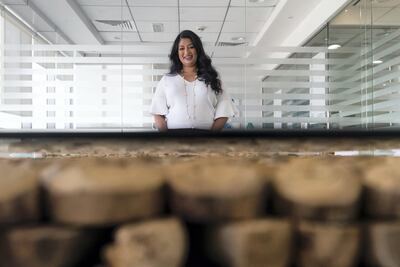Signing up for life insurance is one of a number of basic financial products many UAE residents take for granted.
But for low-income, migrant workers, an insurance product or even a bank account can be completely out of reach.
According to a new report from insurance technology start-up Democrance, low-income employees in the UAE view life insurance as a vital type of social protection, and yet the majority of them lack access to this type of coverage.
The study, Lifestyle and Attitude of Workers within the Low-Income Group in the UAE, which was funded by the United Nations, found that 43 per cent of respondents regard life insurance as vital, yet almost eight in 10 are not insured, due to the high cost of insurance as well as lack of information.
“Inclusion means making insurance affordable and accessible for those who need it most, says Michele Grosso, co-founder and chief executive at Democrance.
"Microinsurance is a vital tool to help lift entire populations out of poverty. Yet, barriers to access often seem insurmountable for low-income migrant workers, many of whom are the sole breadwinners of their households and would greatly benefit from products that can address very real existential fears.”
Mr Grosso was speaking at the Seamleass Middle East event, a payments summit held in Dubai last week, on the topic of financial inclusion. A panel of experts discussed how greater collaboration between FinTech companies and traditional banks is the best way to help the lower paid segment of the population access the financial system.
Due to a lack of suitable bank accounts, insurance policies, credit cards and loan options, approximately 80 per cent of the UAE population is outside the current financial system, according to the World Bank.

However, a number of FinTech start-ups are moving into this space to ensure the unbanked in the Emirates can access basic financial services. Now Money, a company that provides bank accounts and low-cost remittance options, via an app, for low-income employees, launched in 2015. Rise, a wealth management platform for nannies, that allows them to save, invest and borrow, went live last summer and Democrance, an insurance technology startup that aims to make insurance accessible and affordable for all, launched in 2015.
While many pundits warned that the emergence of FinTech firms would threaten traditional players such as banks and exchange houses, the opposite seems to be the case.
Katharine Budd, the co-founder of Now Money, says that collaboration between fintech and traditional banking institutions was not an option, it is a fact.
"If your start-up’s aim is to offer financial products to consumers, you will have to work with regulated institutions at some point, it's unavoidable," says Ms Budd.
Now Money, for example, has a partner bank to hold payments overnight as the company is licensed as a payment services provider rather than a traditional bank.
______
Read more:
The rise of an app that helps UAE nannies save, invest and borrow
Now Money: a fintech start-up servicing the UAE's low-income migrant population
UAE-based fintech start-up Now Money secures $700,000 US investment
______
Ms Budd says there is often a misconception that traditional financial organisations do not want to work with FinTech companies.
"Traditional banks are usually warm to FinTech but naturally, the way global regulated companies operate compared to start-ups is starkly different, and this can slow progress," she says.
A lack of legacy IT systems, smaller size and less regulation are all reasons cited for why start-ups often have the edge on conventional financial institutions when it comes to launching new and innovative products.
According to Democrance chief Mr Grosso, the only way to advance the reach of financial inclusion is to work with established players in the market with mobile channels and remittance houses identified as optimal touchpoints.
Selling insurance via mobile, in conjunction with offers from remittance houses was identified as a particularly attractive option with 71 per cent of the Democrance respondents saying they prefer receiving insurance information through mobile channels, and well over a half indicating they would purchase insurance on their mobile phones.
“Financial inclusion is not just about affordability, but also about having access to the lower-income market and understanding its needs," says Mr Grosso. "This is where a collaboration between insurers and remittance houses can achieve wider reach of the uninsured, while offering increased differentiating value for both industries as well as cost savings through optimised distribution.”
But traditional players are also moving into the space.
Ramana Kumar, head of payments at First Abu Dhabi Bank, says the bank is adding a new proposition to its digital wallet offering, known as Payit, that will allow users to access remittance services directly from their phone to send money home to their families - in a similar service to what Now Money offers.
"The benefit to workers is that they can transfer money at any time of the day or night and they no longer need to wait for their day off to go to the remittance house,” says Mr Kumar, adding that the bank hopes easy access to the product will drive its take up, as only a valid Emirates ID is needed to sign up and no minimum balance is required.
Mr Kumar says the government has made big advances in bringing the unbanked into the financial system, such as launching the Wage Protection System in 2009 to protect workers’ salary.
However, there is still work to be done, he says: “Just providing a bank account doesn’t mean people are included, as workers simply draw all the funds out in one go and enter the cash economy again.”

